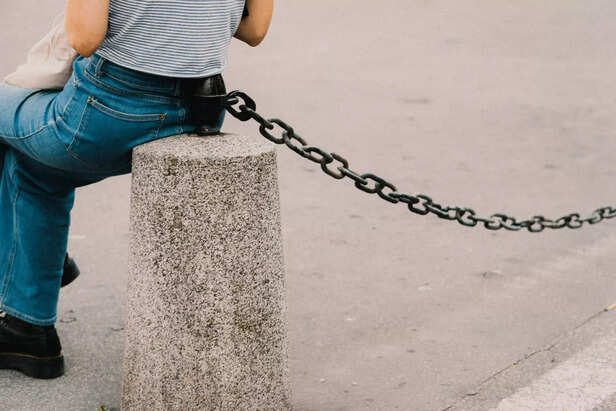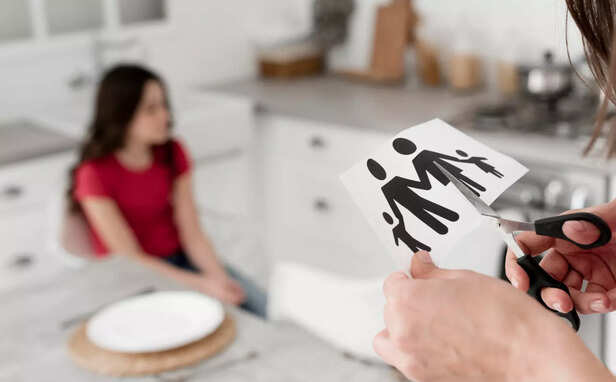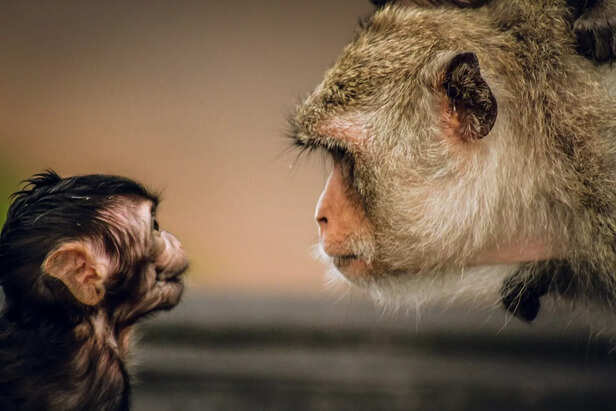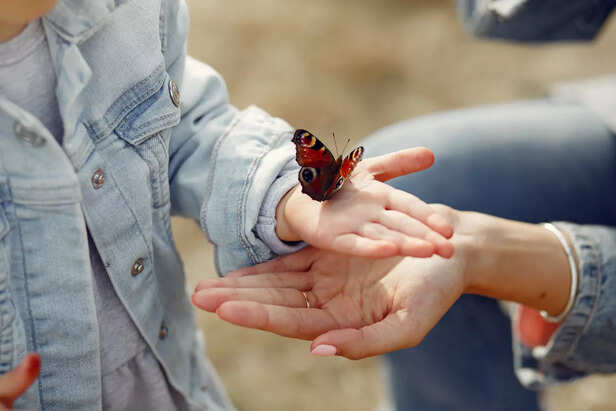Chanakya’s Law: If They Keep Taking, You’re the Fool
Vaibhav Kochar | Jul 10, 2025, 13:15 IST
Chanakya's wisdom highlights the importance of self-respect. It warns against endless giving. People often exploit kindness and how emotional conditioning leads to being used in relationships and society. Differentiation between self-respect from ego. Healing starts with recognizing patterns of exploitation. All should prioritize their well-being and setting boundaries is essential for survival.
“If someone keeps taking from you, and you keep giving without question, you're not generous. You're being used.”
That’s the essence of what Chanakya meant centuries ago, and honestly, it hits harder now than ever. In a world where emotional manipulation is dressed as love, and exploitation is disguised as responsibility, knowing when to stop giving becomes a matter of self-respect, not selfishness.
Let’s talk openly and truthfully. This is not just about money or favours. This is about energy, attention, effort, and most of all, your value.

Chanakya, also known as Kautilya or Vishnugupta, was not just a political strategist or an economist. He was a psychological genius. His teachings were brutal but honest. One of his core philosophies was this: “Don’t let your kindness become your weakness.”
He believed in giving, but with awareness. He warned about blind generosity. Because when people realise you don't know how to say "no", they stop valuing your "yes".
Chanakya’s law, “If they keep taking and you keep giving, you're the fool”, is not about being heartless. It’s about being smart. It’s about protecting yourself in a world where not everyone has good intentions.
Sadly, today, being kind is considered a weakness. People expect you to be available 24/7, say yes to everything, never get tired, never complain, and still smile. And if you ever put yourself first, they call you selfish.
But let’s flip the coin — is it selfish to choose peace over people-pleasing?

Have you ever noticed something?
Because you’ve been conditioned to believe that love means sacrifice, friendship means compromise, and family means tolerating everything. We’ve been taught, especially in Indian culture, that seva (service) is noble, but we forgot to introduce where it ends.
This emotional conditioning creates guilt. Guilt that says:
You’re afraid of confrontation. You fear being left out. You fear being labelled “bad.” And they know it.
That’s the trap. And you’re not alone in it.

Let’s bring this closer to reality.
This isn't just toxic behaviour. It’s subtle abuse. It’s taking advantage of your silence, your fear, your conditioning. And when you start saying no, they call you “changed.”
Yes, you did change. You stopped being their fool.

There’s a difference between ego and self-respect, but manipulators mix the two intentionally.
Ego says: “I’m better than you.”
Self-respect says, “I deserve better than this.”
People will guilt-trip you the moment you draw boundaries. But that’s how you know your boundaries were needed. The only ones who get angry when you say no are the ones who benefited from your “yes.”
Remember, Chanakya didn’t say never give. He said Don’t give endlessly to those who only take. It’s okay to help, but it’s also okay to stop. You owe no one your peace.
And let’s get this straight, self-respect doesn’t mean arrogance. It means choosing yourself in a world that keeps asking you to sacrifice everything, every time.

Most people think healing is all about meditation, therapy, yoga, or solo trips. Yes, those help, but real healing begins when you realise who you’ve become because of others.
When you recognise this pattern and break it, you stop the cycle. You stop being used. You start choosing people who pour into you, too.
You also forgive yourself. For staying too long. For giving too much. For not speaking up. And slowly, you get back the real “you”, the version that comes from abundance, not fear.

Chanakya wasn’t against compassion. He was against stupidity disguised as love.
In today’s world, if you don’t draw the line, people will draw it for you, and you won’t even realise you’ve been standing last in your own life.
So be kind. Be helpful. Be there for people.
But never forget:
If they keep taking and you keep giving, you’re not noble. You’re being used.
And it’s not their fault after a point, it’s yours.
So, from today, repeat this to yourself:
And that’s what Chanakya wanted you to understand.
Explore the latest trends and tips in Health & Fitness, Travel, Life Hacks, Fashion & Beauty, and Relationships at Times Life!
That’s the essence of what Chanakya meant centuries ago, and honestly, it hits harder now than ever. In a world where emotional manipulation is dressed as love, and exploitation is disguised as responsibility, knowing when to stop giving becomes a matter of self-respect, not selfishness.
Let’s talk openly and truthfully. This is not just about money or favours. This is about energy, attention, effort, and most of all, your value.
The Oldest Wisdom Still Makes the Most Sense

Eternal wisdom
( Image credit : Freepik )
Chanakya, also known as Kautilya or Vishnugupta, was not just a political strategist or an economist. He was a psychological genius. His teachings were brutal but honest. One of his core philosophies was this: “Don’t let your kindness become your weakness.”
He believed in giving, but with awareness. He warned about blind generosity. Because when people realise you don't know how to say "no", they stop valuing your "yes".
Chanakya’s law, “If they keep taking and you keep giving, you're the fool”, is not about being heartless. It’s about being smart. It’s about protecting yourself in a world where not everyone has good intentions.
Sadly, today, being kind is considered a weakness. People expect you to be available 24/7, say yes to everything, never get tired, never complain, and still smile. And if you ever put yourself first, they call you selfish.
But let’s flip the coin — is it selfish to choose peace over people-pleasing?
The Guilt Trap: Why Good People Get Used

Guilt trap
( Image credit : Unsplash )
Have you ever noticed something?
- You do everything for others, but when you’re in need, no one shows up.
- You forgive again and again, but one mistake from you, and you’re the villain.
- You always try to understand them, but they never try to understand you.
Because you’ve been conditioned to believe that love means sacrifice, friendship means compromise, and family means tolerating everything. We’ve been taught, especially in Indian culture, that seva (service) is noble, but we forgot to introduce where it ends.
This emotional conditioning creates guilt. Guilt that says:
- “If I say no, they’ll feel bad.”
- “If I stop helping, I’ll look rude.”
- “Maybe I’m overreacting. Maybe I should adjust.”
You’re afraid of confrontation. You fear being left out. You fear being labelled “bad.” And they know it.
That’s the trap. And you’re not alone in it.
Relationships, Society, and the Subtle Abuse

Broken relationships
( Image credit : Freepik )
Let’s bring this closer to reality.
- In Friendships:
- In Family:
- In Relationships:
This isn't just toxic behaviour. It’s subtle abuse. It’s taking advantage of your silence, your fear, your conditioning. And when you start saying no, they call you “changed.”
Yes, you did change. You stopped being their fool.
Self-Respect is Not Ego: Stop Confusing the Two

Ego v/s Self respect
( Image credit : Unsplash )
There’s a difference between ego and self-respect, but manipulators mix the two intentionally.
Ego says: “I’m better than you.”
Self-respect says, “I deserve better than this.”
People will guilt-trip you the moment you draw boundaries. But that’s how you know your boundaries were needed. The only ones who get angry when you say no are the ones who benefited from your “yes.”
Remember, Chanakya didn’t say never give. He said Don’t give endlessly to those who only take. It’s okay to help, but it’s also okay to stop. You owe no one your peace.
And let’s get this straight, self-respect doesn’t mean arrogance. It means choosing yourself in a world that keeps asking you to sacrifice everything, every time.
Healing Begins When You Accept This Law

Healing
( Image credit : Freepik )
Most people think healing is all about meditation, therapy, yoga, or solo trips. Yes, those help, but real healing begins when you realise who you’ve become because of others.
- You were soft. Now you’re scared.
- You were open. Now you’re guarded.
- You were giving. Now you feel empty.
When you recognise this pattern and break it, you stop the cycle. You stop being used. You start choosing people who pour into you, too.
You also forgive yourself. For staying too long. For giving too much. For not speaking up. And slowly, you get back the real “you”, the version that comes from abundance, not fear.
Kindness With Wisdom! That’s Real Strength

Kindness with wisdom
( Image credit : Freepik )
Chanakya wasn’t against compassion. He was against stupidity disguised as love.
In today’s world, if you don’t draw the line, people will draw it for you, and you won’t even realise you’ve been standing last in your own life.
So be kind. Be helpful. Be there for people.
But never forget:
If they keep taking and you keep giving, you’re not noble. You’re being used.
And it’s not their fault after a point, it’s yours.
So, from today, repeat this to yourself:
- “My time is valuable.”
- “My energy is not unlimited.”
- “I am not a rehab for broken people.”
- “I am allowed to say no without guilt.”
- “I am not selfish for choosing peace.”
And that’s what Chanakya wanted you to understand.
Explore the latest trends and tips in Health & Fitness, Travel, Life Hacks, Fashion & Beauty, and Relationships at Times Life!
Frequently Asked Questions (FAQs)
- Did Chanakya actually say this quote word-for-word?No, the quote is a modern interpretation of Chanakya’s philosophies on power, giving, and self-preservation.
- How can I apply this principle without becoming emotionally cold or distant? Set clear boundaries and give consciously, not endlessly; balance empathy with self-awareness.
- Is this law only for personal relationships or does it apply in professional life too?It applies everywhere- workplaces, friendships, and even family; anywhere you’re being taken for granted.
- Can following this philosophy damage close relationships?Only toxic ones, healthy relationships grow stronger when mutual respect and boundaries exist.
